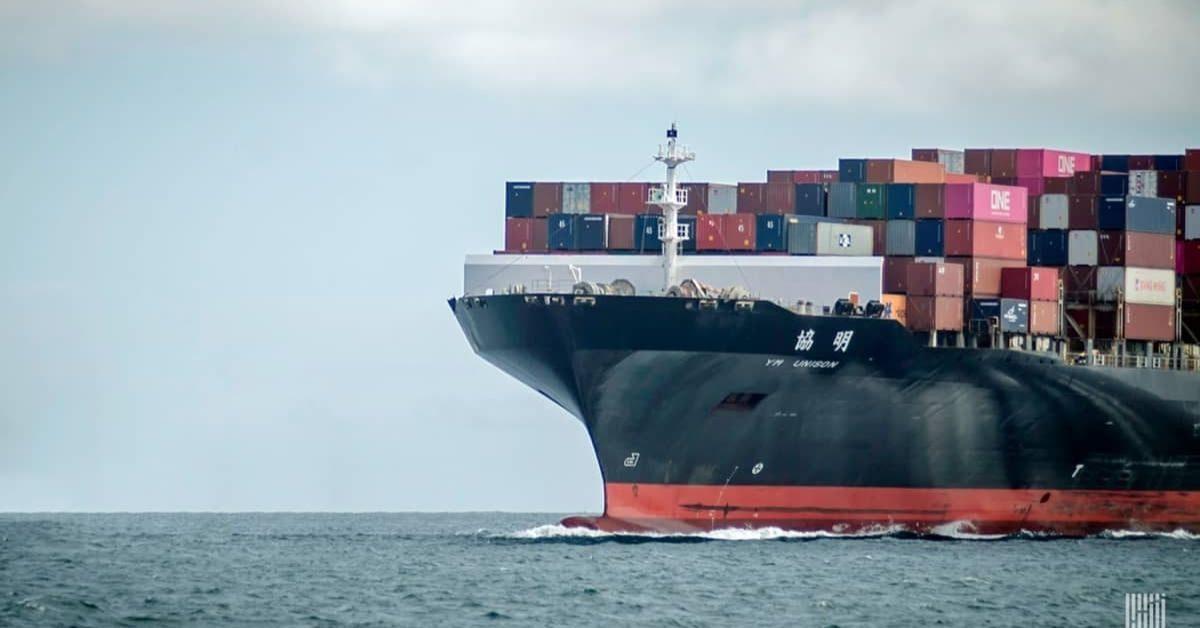The fact that COVID-19 forced brokers and freight forwarders across the supply chain to digitize their processes is no surprise. Congestion at ports and tight capacity is making visibility and streamlined communication a basic necessity to keep customers happy and carrier relationships strong. But for JUSDA, a Los Angeles-based midsized freight forwarder, it was not only those bottlenecks that forced it to reconsider its manual, paper-based processes, it was the movement toward remote work.
“When you work in the office and you’re not fully digitalized, it’s OK because you can cover your weaknesses and kind of talk and pass things around, but as soon as we had to work remotely, we had to look at our business processes — what was digitized and what was done on paper — and start looking at those handoffs to try to digitize all the processes all at once,” said Jack Chang, managing director at JUSDA. “What we found extremely challenging was the accounts payable side of our business.”
As freight volumes continued to soar, JUSDA was adding carriers to its mix — 30% more, in fact. With a remote workforce, it became harder to manually audit carrier payments, as well as track the additional surcharges that were being introduced. The process left a lot of loose ends, causing JUSDA to pay its carriers more slowly than the carriers liked. For example, due to the LA congestion, JUSDA began building up its business at Port Houston, moving 150-200 containers a week there.
“Little did we know that Houston would become a huge bottleneck,” said Chang. “We roughly pay $100K in demurrage a week right now, just because we can’t get enough truck capacity. We didn’t pay certain carriers quickly enough, and they pulled some capacity off of us and rerouted to other customers that are paying them faster. As a result, we lost out on probably about 20 to 30 drivers. We look to be turning that around, but it’s been painful.”
This loss of capacity caused JUSDA to seek out a solution through Expedock, an AI-driven solution dedicated to automating extraction and reconciliation from all freight documents like APs, CIs, BoLs and more. On a large scale, Expedock helped JUSDA instantly extract any invoice and reconcile discrepancies at 99.97% accuracy — all without adding headcount.
“It’s hard to hire back-office talent here in North America, especially last year,” said Chang. “With Expedock, we were able to do more with our existing operators by having them just send the invoices and have Expedock’s AI process the entire workflow for us. We didn’t have to go and have a secondary team to do that work.”
Before implementing a comprehensive change to existing processes, Chang knew that trusting such a solution would not come easy for old-school freight forwarders. To ease the team into Expedock’s solution, he began with JUSDA’s top 20 carriers and allowed the operators to look at the invoices before Expedock processed and posted them to CargoWise. Then every two to three days, accounting sends checks to be cut or processed.
“We still have people that truly believe that automation isn’t real, and there are people typing away at things in the background. It took us three or four months to get those carriers all set up and comfortable. As we go into the second phase, instead of having operators even touch invoices, have those invoices sent directly to email inboxes, which then get posted and processed directly into CargoWise using Expedock.”
Before working for JUSDA, Chang worked for C.H. Robinson, which had a back-office team of 500 people processing invoices. Having to build that system from scratch for small to midsized forwarders is extremely tedious, while also maintaining efficiency, justifying headcount costs and cross-training a team to avoid gaps in process when a person is sick or leaves.
Chang continued: “For forwarders that are midsized like JUSDA, we just didn’t have the resources or bandwidth to set all that up to be enterprise-level support. From a time-saving standpoint, I would probably say we cut out three to four hours a day of just nonsense back and forth between carriers, accounting, operations and everyone trying to coordinate getting things cut, so the truckers don’t stop performing service for us.”
Compared to automating the back-office processes of truck brokerage, freight forwarding processes take into account a larger number of touchpoints: the shipper, manufacturer at origin, the freight forwarder at origin, the customs broker at origin, the steamship line at origin and then origin customs. Then, of course, upon arriving at the international destination, you must consider the customs broker, the freight forwarder, the steamship line, the trucker and any warehouses.
“With every international shipment, there is information overload,” he said. “Most small forwarders cannot afford a large team of data and business analysts or industrial engineers. They’re just trying to survive day to day. Expedock’s pulling of best practices really helps forwarders. It’s easier to compare when mostly everyone’s using CargoWise. To simplify those processes and standardize was really important for us.”
About Expedock
Expedock is the AI-powered automation service behind some of the leading players in the global supply chain. Its team of Stanford engineers are building the powerful data infrastructure that will drive unprecedented levels of customer satisfaction, cost savings and reliable visibility to all players in the industry.
Thousands of freight containers are now being moved internationally via Expedock every week through its freight-specialized AI that eliminates inefficiencies by streamlining all logistics workflows and connecting all physical and digital data sources into one platform.
Source : Freight Waves







